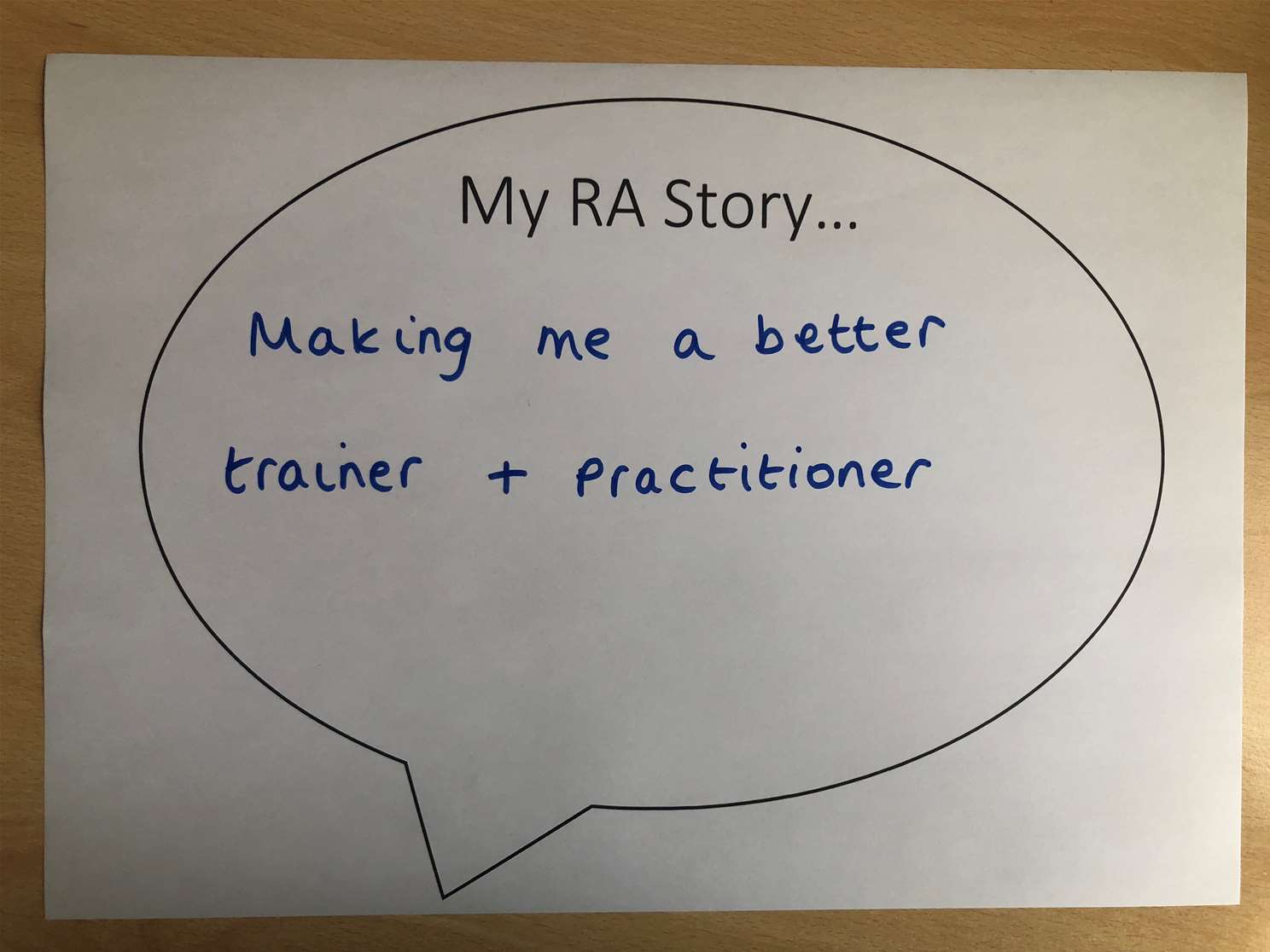Over the past year I have been asked to deliver training, talking about ‘Adverse Childhood Experiences’ (ACEs), which although a difficult topic has been a privilege.
When I was learning about ACEs, I realised that I had experienced 4 during my own childhood. It made me reflect on how that affected me and I realised I was blessed with having several strong adult relationships who were great role models, one being my mum.
Restorative Approaches has helped me and challenged me to be the best I can be, whilst knowing I am not perfect and that I will inevitably make mistakes. My challenge is to accept these mistakes, be honest about them, apologise for any harm I may have caused and encourage me to repair this harm.
This has lead me not to ignore my mistakes but to have the difficult conversations with those I work with or those in my personal life and to ask them what they need to put things right.
I believe because I am not perfect, it has made me a better trainer and practitioner. I feel blessed when people ask me what to do in certain situations, or I am asked to work with individuals in dispute, or with teams, or organisations following mergers and the uncertainty and resentment that this may have caused.
I used to love to solve people’s problems and give them my advice. A pearl of wisdom I have learnt from Restorative Approaches is the phrase that “the people or group with the problem are the best people to resolve that problem and the most likely to have the best solution.”
Great, I hear you say and so what?
This has taught me to LISTEN, really LISTEN. I use the restorative enquiry to do this which is a simple, solutions focussed method.
I listen to the person’s story, I ask them to look with empathy, at who else has been affected. I then support them in problem solving their own issue and coming up with solutions that are SMART (Specific, Measurable, Achievable, Realistic & Timebound).
I feel privileged as people understand their own issue/s more, own it, realise how it has affected them and what they need to make things better or to move forwards.
I have seen people’s lives changed, team cultures change and people empowered to move on with their lives by using the restorative enquiry and approach.
That is why 4 years ago I left a fantastic job to do an even more fantastic job, training others to use these skills and still having the opportunity to carry on being a restorative practitioner.




